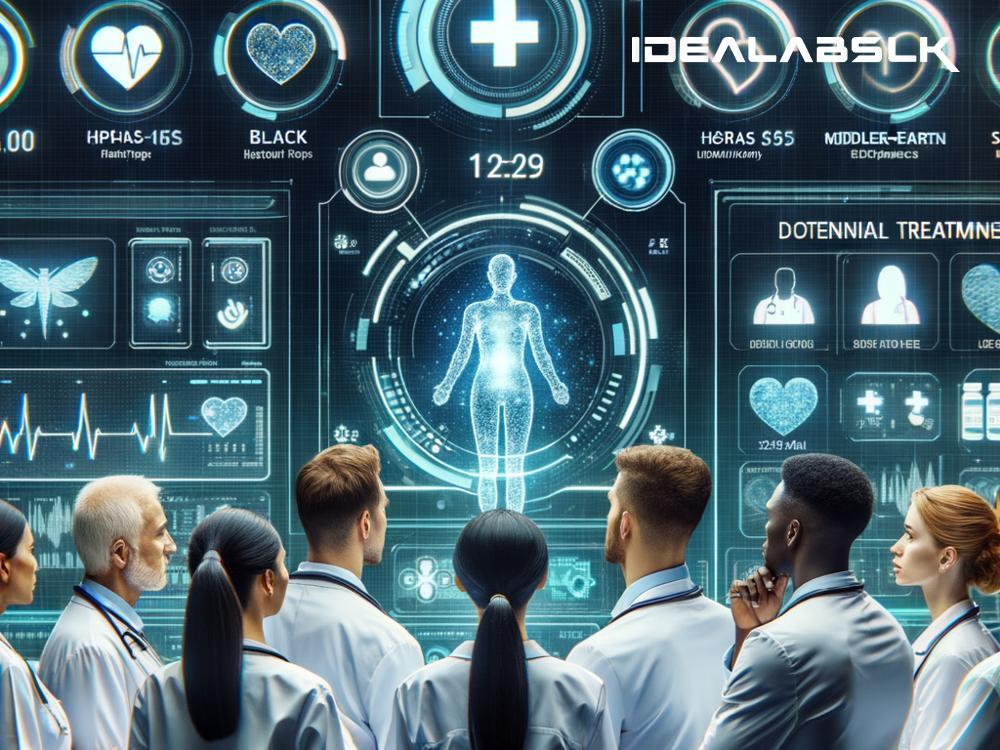As technology progresses at a mind-blowing pace, one of the most beneficial instruments coming out of this surge is Artificial Intelligence (AI). AI is a bit like having a super-smart helper that can analyze massive amounts of information quickly and accurately. In the world of healthcare, doctors and researchers are teaming up with AI to make some groundbreaking strides, particularly in prescribing the right medication for patients. Let's dive into how AI is revolutionizing this essential healthcare aspect, making it safer and more effective for everyone involved.
Understanding AI in Healthcare
Firstly, it's crucial to grasp what AI actually means in the context of healthcare. Imagine a doctor having the ability to sift through a patient's entire medical history, understand their unique genetic makeup, and consider all the complex medical research out there, all in the blink of an eye. That's essentially what AI can do. It processes and analyzes data at a speed and depth that's humanly impossible, providing invaluable insights that assist doctors in making better, more informed decisions.
Accurate Diagnosis and Personalized Medicine
One of the most significant advantages of AI in healthcare is its ability to accurately diagnose diseases and conditions. Sometimes, the symptoms of different illnesses overlap, making it challenging for even the most experienced doctors to diagnose accurately. That's where AI comes in. It can recognize patterns in the data that might not be obvious to human eyes, leading to a more accurate diagnosis.
Once a diagnosis is made, the next step is prescribing the right medication, and AI plays a massive role in this too. Everyone's body responds differently to medication based on various factors like age, weight, genetics, and even the presence of other illnesses. AI algorithms can analyze all these factors, predict how a patient might react to certain medications, and recommend the ones most likely to be effective. This approach, often called personalized medicine, ensures that patients get the most suitable treatment plan tailored specifically to them.
Reduced Medication Errors
Medication errors are a significant concern in healthcare, with adverse drug reactions being a leading cause of hospitalizations and deaths. AI can significantly reduce these errors by providing doctors with decision support in real-time. For example, it can alert them if a prescribed medication might interact negatively with another drug the patient is taking or if the dosage might be too high based on the patient's medical history. This layer of safety can help prevent adverse reactions before they occur, saving lives and improving patient outcomes.
Streamlining Drug Discovery and Approval
Developing new drugs is a lengthy and costly process, but AI is also making strides in this area. By analyzing vast datasets, AI can identify potential drugs that might be effective against certain diseases much faster than traditional methods. It can also predict how different patients might respond to these drugs, which is a significant part of the approval process. This capability not only accelerates drug discovery but also makes the road to regulatory approval smoother, getting much-needed medications to the market quicker.
Empowering Patients in Their Care
Finally, it's worth mentioning how AI empowers patients in their care. AI-powered applications and devices can monitor a patient's health in real-time, remind them to take their medication, and even alert them if something seems off. These tools keep patients actively engaged in their health management and make it easier for them to adhere to their treatment plans.
Conclusion
The integration of AI in healthcare, especially in prescribing the right medication, is a game-changer. It's making the process safer, more accurate, and personalized, ensuring patients receive the best possible care. While the technology is not without its challenges, including privacy concerns and the need for robust data security measures, the potential benefits are too significant to ignore. As AI technology continues to evolve, it's expected to play an even more prominent role in healthcare, further revolutionizing how doctors prescribe medication and how patients receive treatment. The future of healthcare, powered by AI, seems not just promising but also brighter, with the promise of better patient outcomes, reduced errors, and more effective treatments on the horizon.

